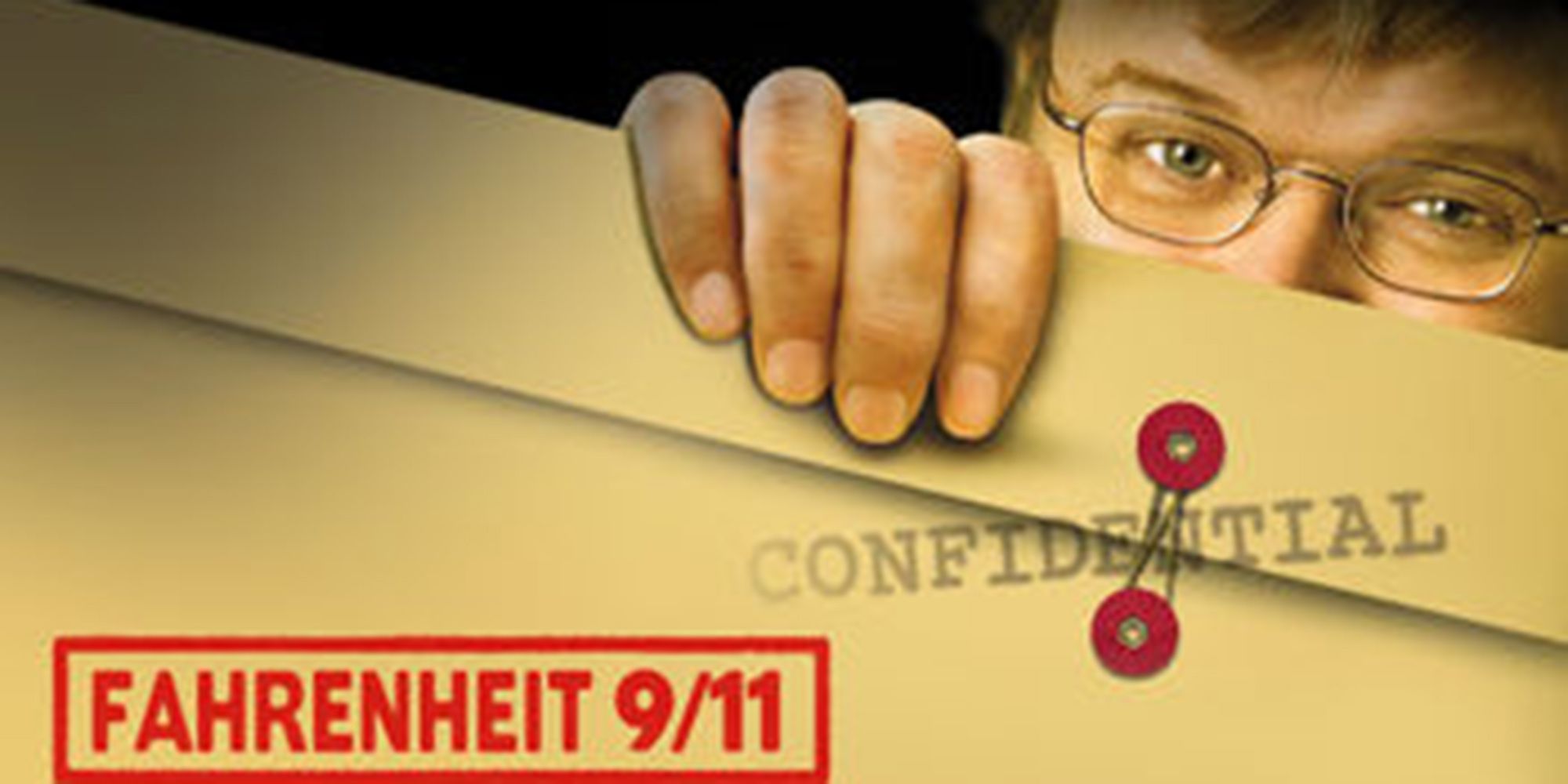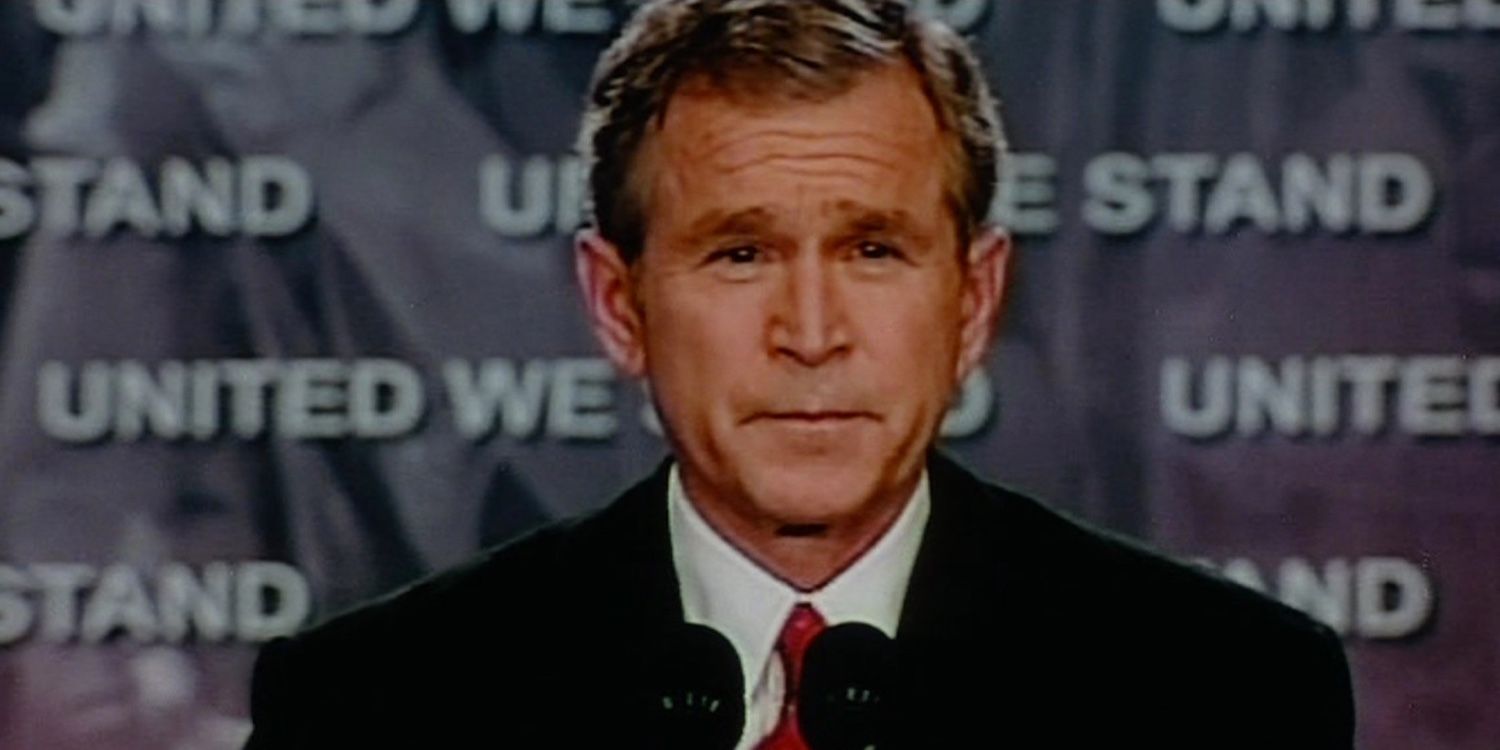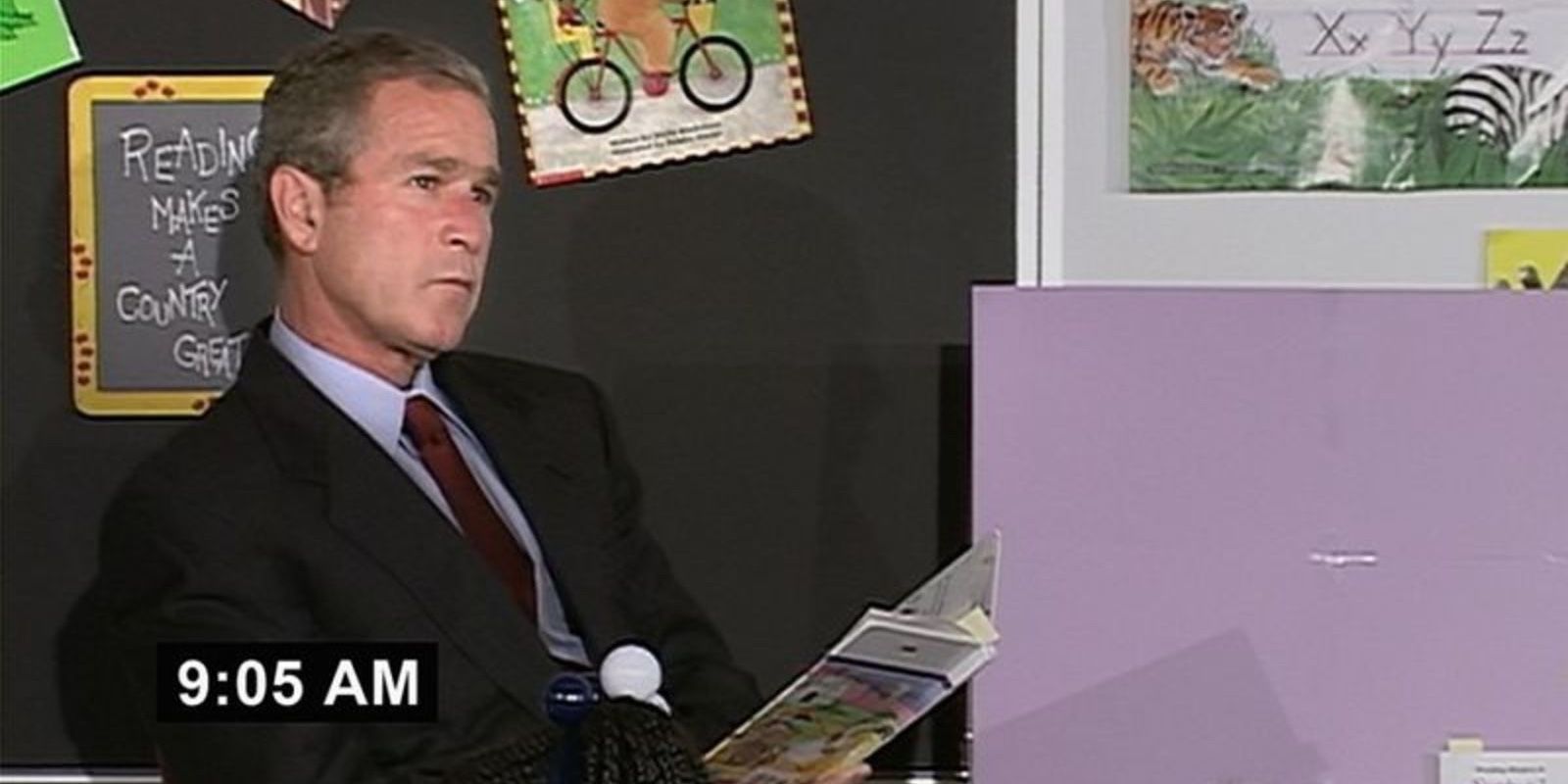Fahrenheit 9/11 has a few valid points to make, but the rest of it either falls flat or comes across as disingenuous. It should not be considered a documentary, given Michael Moore's strong anti-Bush leaning.
Well, after being so critical of the trailer for Fahrenheit 9/11, I finally went and saw the movie. I have to say, I've never felt so out of place in a movie theater since I saw Annie in 1982. Literally from the first frame, it was obvious that the audience (at least the Democratic part of it) was using this movie for cathartic purposes. Every time someone in the movie talked about leaving the Republican party to join the Democrats, cheers erupted from the audience. Being a lifelong Republican, I wisely chose to keep my mouth shut (for once).
I always figured Moore was Democrat-friendly, but I didn't realize the extent until I saw the movie. He didn't exactly go easy on the Democrats, but every Republican across the board was a bumbling idiot in this movie. Before I saw the movie, I remarked on this site that I thought it was laughable to lump this movie in with the McCain-Feingold law. Having seen the movie, I think I was wrong about that. This movie has very little objectivity to it. It could easily serve as a political tool for the Democrats. Oddly enough, John Kerry's name is never mentioned once during the entire movie. Even Clinton and Gore only pop up a few times, which kind of surprised me.
I felt frustrated after this movie ended. Sure, there were things in there that I didn't agree with, but more than that, it felt like the movie didn't really know what it was trying to say. Is it trying to say that Bush has given preferential treatment to the Saudis? Is it trying to say that we shouldn't have gone into Iraq? Is it trying to say that Congress and the Senate should read all 10,000 pages of legalese before they pass certain bills? Or is it trying to say that John Ashcroft should spend more time being Attorney General, and less time singing? Given the right facts, I might actually agree with any of those viewpoints, but to me it felt like the movie had too much to say in too short a time, so most of the arguments fell flat as a result.
The movie starts out talking about what a nightmare it was that Gore lost an election he should have won fair and square. Are we still fixated on that? As far as I'm concerned, Bush and Gore should both hang their heads in shame. An election that requires weeks upon weeks just to decide who won is a sign of apathy from the voters. Neither candidate got voters very excited, and that's a shame. Yeah, it was a bit of a mess, but let's drop it, all right? I don't hear anyone complaining about all the underhanded tactics Joe Kennedy used to get his son John elected in 1960, so can we just let this go?
As for the Saudi connection, that fell terribly flat, at least for me. The Bin Laden family is Saudi. The Bush family and the Bin Laden family have invested in some of the same things. Some of the Bin Laden siblings have met some of the Bushes. What's the big deal? The Bin Laden family disowned Osama in 1994. They have said publicly that they want nothing to do with him, and that they don't share his violent and hateful views. The movie implies (but doesn't say) that Bush ordered the Bin Laden siblings to be whisked out of the country after the Sept. 11 attacks. In fact, it was Richard Clarke who ordered that, and it was entirely appropriate for him to do so. Following those attacks, there was a tremendously anti-Arab sentiment, and people with the last name Bin Laden probably weren't high on the popularity list at that point. It's called saving lives. It's what the government does, to the extent it can. As for us being allies with Saudi Arabia, what can I say? The Saudi royal family is in a tough spot. They have to condemn terrorism, but they also have to look like they're not too far in bed with the American infidels. Plus, we depend on them heavily for our oil. Without it, our economy would suffer tremendously. Would that make Bush a more popular president? Like it or not, Moore, we are not a completely self-sufficient country. We depend partly on other countries for some of our goods and services. Deal with it.
The movie then wanders about a bit, talking about George W. Bush's failed business attempts. That, in and of itself, means nothing, but the movie then makes a huge deal about how Bush knew all these people who ended up working under his administration, either directly or indirectly. (Even Hamid Karzai, president of Aghanistan, made the list!) Newsflash, Moore: It's easier to choose the right person for the job if you know a little something about the person. Choosing someone from off the street whom you've never met is a little tougher than you think. A non-issue, from my vantage point.
Next, the movie tries to argue against the Iraq war. Here's where things really fall flat. The Iraq part shows people blissfully living their lives without a care in the world, then BAM! We invade, and life in Iraq goes straight down the tubes. Hogwash! I'm a big opponent of the Iraq war, just to clarify things, but not for a minute do I think that life was peachy before we invaded. Listen, Moore, we invaded Iraq for a reason, and that reason was because Saddam Hussein was an oppressive, brutal tyrant. Bush may have sold the country a bill of goods regarding WMD's, etc., but the reality is that we went into Iraq to stop genocide. It's the same reason we went into Kosovo, although Iraq was just a little more complicated than that. Moore argues that Iraq was wrong because of the loss of life. He even features a mother who lost her son in Iraq. About the mother, what can I say? I can't imagine what it's like to lose a child. War is never a happy time; very little good can come of it, but sometimes it's necessary. My main opposition to the war was that we didn't have the money or resources to go into Iraq when we did. (Moore illustrates this point in another scene, where he talks about how the Oregon coastline is practically unguarded because of cutbacks.)
The last part of the movie is a bit of a mishmash. It features Moore being obnoxious as usual, first by asking Congressmen to sign their kids up for the military, and then by riding around in an ice cream truck reading the Patriot Act for the benefit of the Congress members who didn't read it before they signed it into law. He also features a corporal who says he will refuse to go back to Iraq if he's called. Um, just curious, but why did you join up, corporal? You can't pick and choose which orders to follow in the military. There's also a scene earlier in the movie that got me laughing, where a serviceman in Iraq complains about how Halliburton employees in Iraq are doing the same job he is, but for five times the pay. Does "life isn't fair" ring any bells, sir? Have you even looked into working for Halliburton, as opposed to whining?
For all the problems I had with this movie, there was one part of it that actually made a coherent point. Moore went back to his hometown of Flint, Michigan, where the unemployment rate is much higher than the national average. Most of the people there are financially disadvantaged, to say the least, and the military is the only logical career choice for many of them. Military recruiters are rampant in that town, and they are about as subtle as used-car salesmen. I'm probably not quoting verbatim, but Moore makes the point that people from the less privileged parts of the country are victims of a broken system. By joining the military, they become the first to step up and defend that system. Many of them even die to protect that system. A little oversimplified? Perhaps, but it's what I took away from the movie, first and foremost.
Did the movie sway my political views one way or the other? Let's put it this way: I still plan to vote for Bush in November. I'm not happy with some of the things he has done in his first term, but my conscience won't let me say that Kerry is a better choice. But as Dennis Miller is always so fond of saying, that's just my opinion. I could be wrong.



